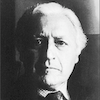- 09 Apr 2007 11:28
#1170917
Was Chiang Kai Shek a Fascist? I ask this quesiton primarily because of his political attitudes, and many factors in his policy which matched Fascist in Europe, and to a great extent also the Fascistic ultra-nationalism of Japan.
These characteristics are:
1. A bitter hatred of the Communists, and intense efforts at the maintinance of the free market system.
2. The Centralised structure of the Nationalist Party, KMT, and the silencing of all opposition. In addition to Chiang wearing the title of Generalissimo, very much in a similar way to other Fascist leaders.
3. A promotion of traditional Chinese values, and excessive amounts of Nationalism.
4. The combination of modern technology with old style values, such as the construction of swimming pools and movie theatres but with the use being in accordance with Confucian values.
With all of these factors, can we not assume that General Chiang was in many ways an example of Chinese Fascism? The wearing of uniforms, and the militristic spirit of his government combined with the anti-Communism, and promotion of old Chinese values in an almost overtly nationalistic manner seems to suggest this. Yet what do we make then of men like the Ayatollah Khomeini? Or Mao Zedong? Or Kim Il Sung? These men did appear to promote to an extent elements of their countries native culture against Imperialism, but is it merely the way by which Chiang's government resembled Fascism in so many other ways which leads me to this conclusion? Remember, Chiang also tried to prolong the peace between China and Japan, and in reality saw the Communists as his biggest enemy. I remember someone even saying that until the Nazi-Japanese anti-comintern pact, Chiang received weapons from the Germans to fight the Communists, and this ended when the Japanese invasion of China became redundant.
These characteristics are:
1. A bitter hatred of the Communists, and intense efforts at the maintinance of the free market system.
2. The Centralised structure of the Nationalist Party, KMT, and the silencing of all opposition. In addition to Chiang wearing the title of Generalissimo, very much in a similar way to other Fascist leaders.
3. A promotion of traditional Chinese values, and excessive amounts of Nationalism.
4. The combination of modern technology with old style values, such as the construction of swimming pools and movie theatres but with the use being in accordance with Confucian values.
With all of these factors, can we not assume that General Chiang was in many ways an example of Chinese Fascism? The wearing of uniforms, and the militristic spirit of his government combined with the anti-Communism, and promotion of old Chinese values in an almost overtly nationalistic manner seems to suggest this. Yet what do we make then of men like the Ayatollah Khomeini? Or Mao Zedong? Or Kim Il Sung? These men did appear to promote to an extent elements of their countries native culture against Imperialism, but is it merely the way by which Chiang's government resembled Fascism in so many other ways which leads me to this conclusion? Remember, Chiang also tried to prolong the peace between China and Japan, and in reality saw the Communists as his biggest enemy. I remember someone even saying that until the Nazi-Japanese anti-comintern pact, Chiang received weapons from the Germans to fight the Communists, and this ended when the Japanese invasion of China became redundant.

















